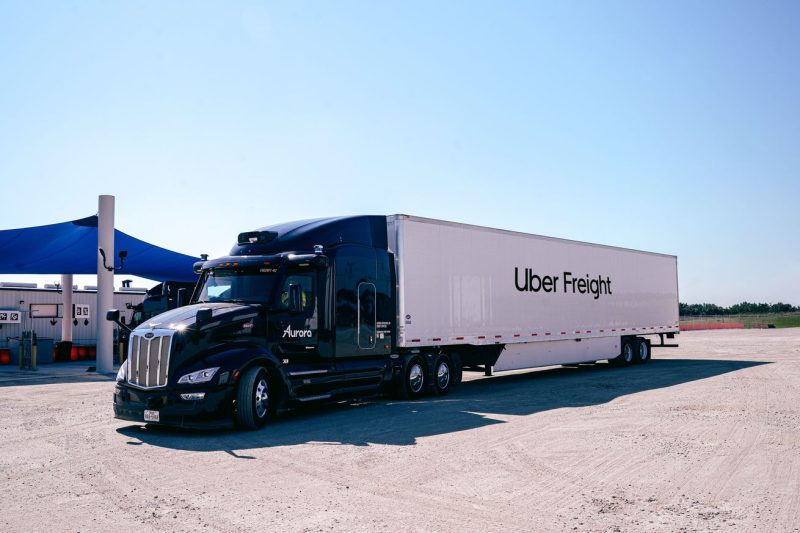Uber and Aurora Announce Long-Term Driverless Truck Deal after Successful Pilot
The partnership between Uber and Aurora may mark a significant milestone in the future of trucking and autonomous vehicle technology. The recent announcement of a long-term driverless truck deal between the two companies comes hot on the heels of a successful pilot program. This collaboration is poised to shake up the transportation industry, setting a new standard for efficiency and safety in freight delivery.
Aurora, a leading autonomous vehicle technology company, brings its expertise in self-driving technology to the table, while Uber Freight, the renowned on-demand freight service provider, offers its extensive network and logistics capabilities. The synergy between these two powerhouses promises to revolutionize the way goods are transported across the country.
The pilot program that preceded this long-term deal reportedly demonstrated the viability and reliability of using autonomous trucks for freight delivery. By leveraging Aurora’s cutting-edge technology, the trucks were able to navigate various terrains, weather conditions, and traffic scenarios with an impressive level of accuracy and precision. This successful test run provided the necessary proof-of-concept for both companies to move forward with a broader, long-term partnership.
One of the key benefits of deploying autonomous trucks in freight delivery is the potential improvement in safety. By removing human drivers from the equation, the risk of accidents caused by human error is significantly reduced. Autonomous vehicles are designed to adhere strictly to traffic rules, maintain safe distances, and react swiftly to potential hazards, making them inherently safer than human drivers in many situations.
In addition to safety, autonomous trucks also offer significant efficiency gains. By operating around the clock without the need for breaks or rest, autonomous vehicles can potentially reduce delivery times and increase the overall throughput of goods. This increased efficiency not only benefits the companies involved but also has the potential to lower costs and improve the overall competitiveness of the transportation industry.
However, the adoption of autonomous trucks is not without its challenges. Regulatory hurdles, public acceptance, and technical limitations are just some of the obstacles that need to be overcome before driverless trucks can become a common sight on the roads. Addressing these challenges will require close collaboration between industry stakeholders, policymakers, and the public to ensure a smooth transition to this new paradigm in transportation.
Despite the challenges, the partnership between Uber and Aurora represents a significant step forward in bringing autonomous trucking closer to reality. By combining their respective strengths in technology, logistics, and operations, the two companies are well-positioned to lead the way in realizing the full potential of autonomous freight delivery. As this long-term deal unfolds, it is likely that we will see further innovations and advancements that will shape the future of trucking for years to come.

